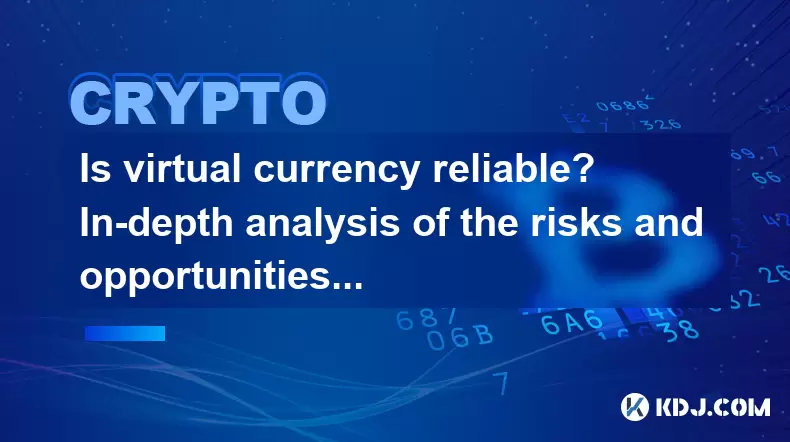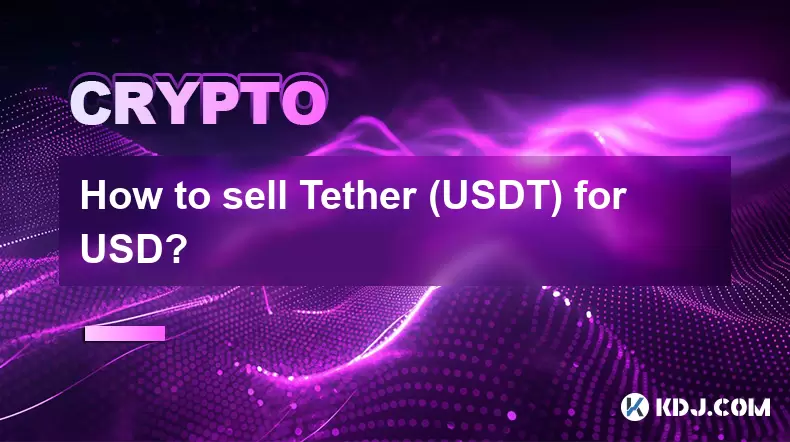-
 Bitcoin
Bitcoin $115100
1.27% -
 Ethereum
Ethereum $3675
2.71% -
 XRP
XRP $2.995
1.45% -
 Tether USDt
Tether USDt $1.000
0.02% -
 BNB
BNB $769.8
2.64% -
 Solana
Solana $168.0
3.25% -
 USDC
USDC $0.9999
-0.01% -
 TRON
TRON $0.3371
1.48% -
 Dogecoin
Dogecoin $0.2051
3.36% -
 Cardano
Cardano $0.7394
2.30% -
 Hyperliquid
Hyperliquid $38.15
0.42% -
 Stellar
Stellar $0.3966
-0.36% -
 Sui
Sui $3.486
2.93% -
 Chainlink
Chainlink $16.72
2.52% -
 Bitcoin Cash
Bitcoin Cash $568.0
4.36% -
 Hedera
Hedera $0.2440
2.59% -
 Ethena USDe
Ethena USDe $1.001
0.04% -
 Avalanche
Avalanche $22.16
2.06% -
 Litecoin
Litecoin $119.1
-0.73% -
 UNUS SED LEO
UNUS SED LEO $8.991
0.04% -
 Toncoin
Toncoin $3.232
-0.39% -
 Shiba Inu
Shiba Inu $0.00001233
2.82% -
 Uniswap
Uniswap $9.717
2.53% -
 Polkadot
Polkadot $3.664
1.85% -
 Dai
Dai $1.000
0.01% -
 Monero
Monero $281.2
-3.89% -
 Bitget Token
Bitget Token $4.350
1.55% -
 Cronos
Cronos $0.1428
5.07% -
 Pepe
Pepe $0.00001050
3.68% -
 Aave
Aave $262.3
3.54%
Is virtual currency reliable? In-depth analysis of the risks and opportunities of digital currency
Virtual currency's reliability hinges on security, market volatility, regulation, and growth potential, with ongoing innovations enhancing its scalability and adoption.
Jun 05, 2025 at 07:56 pm

Is virtual currency reliable? This question has been at the forefront of discussions in the cryptocurrency community for years. To provide a comprehensive answer, it's essential to delve into the risks and opportunities associated with digital currencies. This article aims to offer an in-depth analysis of the reliability of virtual currency by examining various aspects such as security, market volatility, regulatory environment, and potential for growth.
Security and Cybersecurity Risks
One of the primary concerns when it comes to the reliability of virtual currency is security. Cryptocurrencies operate on decentralized networks, which means they are not controlled by any central authority. While this offers users a high degree of autonomy, it also makes them vulnerable to cybersecurity threats.
Hacking and Theft: Numerous high-profile hacks have occurred in the cryptocurrency space, resulting in the loss of millions of dollars. For instance, the 2014 Mt. Gox hack and the 2016 DAO hack are infamous examples where significant amounts of digital currency were stolen. Users must employ robust security measures such as using hardware wallets, enabling two-factor authentication, and being cautious of phishing attempts to mitigate these risks.
Smart Contract Vulnerabilities: With the rise of decentralized finance (DeFi), smart contracts have become a crucial component of many blockchain platforms. However, smart contracts can have coding errors or vulnerabilities that can be exploited by malicious actors. The 2016 DAO hack was a result of such a vulnerability, highlighting the need for thorough auditing and testing of smart contracts before deployment.
Market Volatility and Investment Risks
Another aspect that affects the reliability of virtual currency is its notorious market volatility. Cryptocurrency prices can fluctuate dramatically within short periods, which can lead to significant financial gains or losses.
Price Swings: Bitcoin, for instance, has experienced price swings from a few hundred dollars to nearly $65,000 and back down again within a few years. Such volatility can be both an opportunity and a risk. For investors willing to take on higher risk, these fluctuations can result in substantial returns. However, for those with a lower risk tolerance, the potential for sudden and significant losses can be daunting.
Market Manipulation: The cryptocurrency market is also susceptible to manipulation, such as pump-and-dump schemes where prices are artificially inflated before being sold off, leaving other investors with losses. Regulatory bodies are working to curb such practices, but the decentralized nature of cryptocurrencies makes it challenging to enforce strict controls.
Regulatory Environment and Legal Risks
The regulatory landscape for virtual currencies varies significantly across different countries, impacting their reliability. Some countries have embraced cryptocurrencies, while others have imposed strict regulations or outright bans.
Regulatory Uncertainty: In regions where the regulatory framework is still evolving, investors face uncertainty about the legal status of their investments. For example, the U.S. Securities and Exchange Commission (SEC) has been scrutinizing Initial Coin Offerings (ICOs) and classifying some as securities, which subjects them to stringent regulations.
Compliance and Taxation: Navigating the complex web of compliance and taxation can be challenging for cryptocurrency users. Different jurisdictions have different rules regarding the reporting and taxation of cryptocurrency transactions. Failure to comply with these regulations can result in penalties and legal repercussions.
Opportunities and Growth Potential
Despite the risks, virtual currencies offer numerous opportunities that contribute to their reliability. The underlying technology of blockchain has the potential to revolutionize various industries, from finance to supply chain management.
Decentralized Finance (DeFi): DeFi platforms enable financial services such as lending, borrowing, and trading without the need for traditional financial intermediaries. This opens up new avenues for financial inclusion and innovation. For instance, DeFi protocols like Aave and Compound allow users to earn interest on their cryptocurrency holdings, providing an alternative to traditional savings accounts.
Tokenization and Asset Management: Blockchain technology facilitates the tokenization of real-world assets, making it easier to buy, sell, and trade them. This can increase liquidity and accessibility to various asset classes, such as real estate or art. Platforms like RealT and Maecenas are examples of how tokenization is being used to democratize investment opportunities.
Cross-Border Transactions: Cryptocurrencies can facilitate faster and cheaper cross-border transactions compared to traditional banking systems. Ripple's XRP is designed to enable real-time gross settlement systems, which can significantly reduce the time and cost associated with international money transfers.
Adoption and Mainstream Acceptance
The reliability of virtual currency is also influenced by its level of adoption and mainstream acceptance. As more businesses and institutions begin to accept cryptocurrencies, their perceived reliability increases.
Institutional Investment: The entry of institutional investors into the cryptocurrency market has lent credibility to digital currencies. Companies like Tesla and Square have invested significant amounts in Bitcoin, signaling confidence in its long-term value. Additionally, the launch of cryptocurrency funds and investment vehicles by major financial institutions further validates the asset class.
Merchant Adoption: An increasing number of merchants are beginning to accept cryptocurrencies as a form of payment. Companies like PayPal and Visa have integrated cryptocurrency payment options, making it easier for consumers to use digital currencies in everyday transactions. This growing acceptance helps to build trust and reliability in the eyes of the public.
Technical Innovations and Scalability
Finally, the reliability of virtual currency is closely tied to ongoing technical innovations and improvements in scalability. Blockchain networks are continuously evolving to address issues such as transaction speed and cost.
Layer 2 Solutions: Technologies like the Lightning Network for Bitcoin and sidechains for Ethereum aim to enhance the scalability of these networks. These solutions enable faster and cheaper transactions, making cryptocurrencies more practical for everyday use.
Consensus Mechanisms: The choice of consensus mechanism can significantly impact the reliability of a cryptocurrency. Proof of Work (PoW), used by Bitcoin, is energy-intensive but highly secure. Proof of Stake (PoS), used by Ethereum 2.0, is more energy-efficient and can offer faster transaction processing. The shift from PoW to PoS in Ethereum is expected to improve its scalability and reliability.
Frequently Asked Questions:
How can I protect my cryptocurrency from theft?
To protect your cryptocurrency from theft, you should use a hardware wallet for storing your digital assets offline. Enable two-factor authentication on all your accounts and be cautious of phishing attempts. Regularly update your software and use strong, unique passwords for each platform.
Are there any cryptocurrencies that are less volatile than Bitcoin?
While all cryptocurrencies are subject to volatility, some are designed to be more stable. Stablecoins like Tether (USDT) and USD Coin (USDC) are pegged to fiat currencies and aim to maintain a stable value. Additionally, some cryptocurrencies like Ripple (XRP) have historically exhibited lower volatility compared to Bitcoin.
How do I report my cryptocurrency earnings for tax purposes?
The process for reporting cryptocurrency earnings varies by country. In the U.S., you must report your cryptocurrency transactions on your tax return. Capital gains and losses from selling cryptocurrencies are reported on Schedule D (Capital Gains and Losses) and Form 8949 (Sales and Other Dispositions of Capital Assets). Income from mining, staking, or receiving cryptocurrencies as payment is reported as ordinary income.
What are the most promising use cases for blockchain technology outside of finance?
Beyond finance, blockchain technology has promising use cases in various industries. Supply chain management can benefit from blockchain's ability to provide transparency and traceability. Healthcare can use blockchain for secure sharing of patient data. Voting systems can leverage blockchain to ensure the integrity and transparency of elections. These applications highlight the versatility and potential of blockchain technology.
Disclaimer:info@kdj.com
The information provided is not trading advice. kdj.com does not assume any responsibility for any investments made based on the information provided in this article. Cryptocurrencies are highly volatile and it is highly recommended that you invest with caution after thorough research!
If you believe that the content used on this website infringes your copyright, please contact us immediately (info@kdj.com) and we will delete it promptly.
- HashFlare Founders Face the Music: Jail Time Looms?
- 2025-08-07 14:30:12
- Pepeto's Pounce: Meme Coin Mania Meets Blockchain Infrastructure
- 2025-08-07 15:10:12
- Parataxis, SPAC Merger, and Bitcoin Treasury: A New York Minute on Crypto's Latest Moves
- 2025-08-07 15:30:12
- Toshi on Binance.US: A Memecoin's Big Break
- 2025-08-07 14:30:12
- Bitcoin, SPAC Mergers, and Parataxis: A New Yorker's Take on Crypto's Wall Street Moment
- 2025-08-07 14:50:27
- Bitcoin, Collateral, and Loan Strategies: A New York Minute on the Future of Finance
- 2025-08-07 14:50:27
Related knowledge

How to sell Tether (USDT) for USD?
Aug 07,2025 at 03:29pm
Understanding Tether (USDT) and Its USD ValueTether (USDT) is a stablecoin designed to maintain a 1:1 value ratio with the United States Dollar (USD)....

How to sell my Bitcoincoin for cash?
Aug 07,2025 at 02:14pm
Understanding the Basics of Selling Dogecoin for CashSelling Dogecoin for cash involves converting your DOGE tokens into a fiat currency such as USD, ...

What is Chainlink (LINK)?
Jul 22,2025 at 02:14am
Understanding Chainlink (LINK): The Decentralized Oracle NetworkChainlink is a decentralized oracle network designed to bridge the gap between blockch...

What is Avalanche (AVAX)?
Jul 22,2025 at 08:35am
What is Avalanche (AVAX)?Avalanche (AVAX) is a decentralized, open-source blockchain platform designed to support high-performance decentralized appli...

What is Polkadot (DOT)?
Jul 19,2025 at 06:35pm
Understanding the Basics of Polkadot (DOT)Polkadot (DOT) is a multi-chain network protocol designed to enable different blockchains to transfer messag...

What is Litecoin (LTC)?
Jul 23,2025 at 11:35am
Overview of Litecoin (LTC)Litecoin (LTC) is a peer-to-peer cryptocurrency that was created in 2011 by Charlie Lee, a former Google engineer. It is oft...

How to sell Tether (USDT) for USD?
Aug 07,2025 at 03:29pm
Understanding Tether (USDT) and Its USD ValueTether (USDT) is a stablecoin designed to maintain a 1:1 value ratio with the United States Dollar (USD)....

How to sell my Bitcoincoin for cash?
Aug 07,2025 at 02:14pm
Understanding the Basics of Selling Dogecoin for CashSelling Dogecoin for cash involves converting your DOGE tokens into a fiat currency such as USD, ...

What is Chainlink (LINK)?
Jul 22,2025 at 02:14am
Understanding Chainlink (LINK): The Decentralized Oracle NetworkChainlink is a decentralized oracle network designed to bridge the gap between blockch...

What is Avalanche (AVAX)?
Jul 22,2025 at 08:35am
What is Avalanche (AVAX)?Avalanche (AVAX) is a decentralized, open-source blockchain platform designed to support high-performance decentralized appli...

What is Polkadot (DOT)?
Jul 19,2025 at 06:35pm
Understanding the Basics of Polkadot (DOT)Polkadot (DOT) is a multi-chain network protocol designed to enable different blockchains to transfer messag...

What is Litecoin (LTC)?
Jul 23,2025 at 11:35am
Overview of Litecoin (LTC)Litecoin (LTC) is a peer-to-peer cryptocurrency that was created in 2011 by Charlie Lee, a former Google engineer. It is oft...
See all articles

























































































